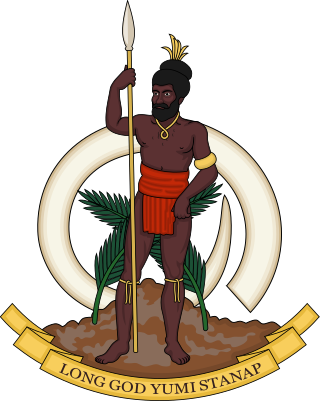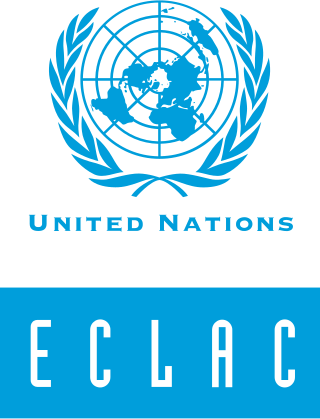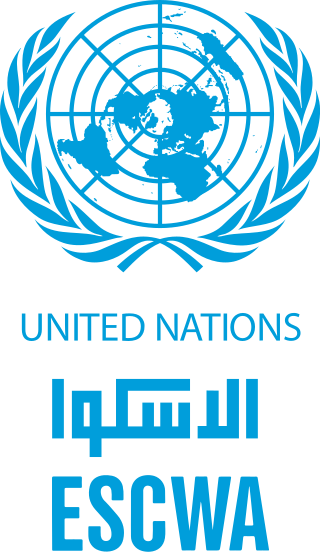
The Asian Development Bank (ADB) is a regional development bank established on 19 December 1966, which is headquartered in 6 ADB Avenue, Mandaluyong, Metro Manila 1550, Philippines. The bank also maintains 31 field offices around the world to promote social and economic development in Asia. The bank admits the members of the UN Economic and Social Commission for Asia and the Pacific, and non-regional developed countries. Starting with 31 members at its establishment, ADB now has 68 members.

The foreign relations of Laos, internationally designated by its official name as the Lao People's Democratic Republic, after the takeover by the Pathet Lao in December 1975, were characterized by a hostile posture toward the West, with the government of the Lao People's Democratic Republic aligning itself with the Soviet bloc, maintaining close ties with the Soviet Union and depending heavily on the Soviets for most of its foreign assistance. Laos also maintained a "special relationship" with Vietnam and formalized a 1977 treaty of friendship and cooperation that created tensions with China.

The United Nations Economic and Social Council (EcoSoc) is one of the six principal organs of the United Nations, responsible for coordinating the economic and social fields of the organization, specifically in regards to the fifteen specialized agencies, the eight functional commissions, and the five regional commissions under its jurisdiction.

Vanuatu maintains diplomatic relations with many countries, and it has a small network of diplomatic missions. Australia, France, Japan, New Zealand, the People's Republic of China, South Korea and the United Kingdom maintain embassies, High Commissions, or missions in Port Vila. The British High Commission maintained a continued presence for almost a century, though closed from 2005 until reopening in 2019.

The United Nations Economic Commission for Europe is one of the five regional commissions under the jurisdiction of the United Nations Economic and Social Council. It was established in order to promote economic cooperation and integration among its member states.
From 1916 to 1975, Tuvalu was part of the Gilbert and Ellice Islands colony of the United Kingdom. A referendum was held in 1974 to determine whether the Gilbert Islands and Ellice Islands should each have their own administration. As a consequence of the referendum, the separate British colonies of Kiribati and Tuvalu were formed. Tuvalu became fully independent as a sovereign state within the Commonwealth on 1 October 1978. On 5 September 2000, Tuvalu became the 189th member of the United Nations.

The United Nations Economic Commission for Africa was established in 1958 by the United Nations Economic and Social Council to encourage economic cooperation among its member states following a recommendation of the United Nations General Assembly. It is one of five regional commissions.

The Asian Highway Network (AH), also known as the Great Asian Highway, is a cooperative project among countries in Asia and the United Nations Economic and Social Commission for Asia and the Pacific (ESCAP) to improve their connectivity via highway systems. It is one of the three pillars of the Asian Land Transport Infrastructure Development (ALTID) project, endorsed by the ESCAP commission at its 48th session in 1992, comprising Asian Highway, Trans-Asian Railway (TAR) and facilitation of land transport projects.

The United Nations Economic Commission for Latin America and the Caribbean, known as ECLAC, UNECLAC or in Spanish and Portuguese CEPAL, is a United Nations regional commission to encourage economic cooperation. ECLAC includes 46 member States, and 14 associate members which are various non-independent territories, associated island countries and a commonwealth in the Caribbean. ECLAC publishes statistics covering the countries of the region and makes cooperative agreements with nonprofit institutions. The headquarters of ECLAC is in Santiago, Chile.

The United Nations Economic and Social Commission for West Asia is one of five regional commissions under the jurisdiction of the United Nations Economic and Social Council. The role of the Commission is to promote economic and social development of Western Asia through regional and subregional cooperation and integration.

The Group of Western European and Other States, also known as the Western European and Other States Group or WEOG, is one of the five United Nations regional groups and is composed of 28 Member States mainly from Western Europe, but also from North America, the Eastern Mediterranean, Fennoscandia and Oceania.

The United Nations Permanent Forum on Indigenous Issues is the UN's central coordinating body for matters relating to the concerns and rights of the world's indigenous peoples. There are more than 370 million indigenous people in some 70 countries worldwide.

Noeleen Heyzer is a Singaporean social scientist, diplomat, and United Nations official who was the United Nations Special Envoy on Myanmar from October 2021 until June 2023.

The Group of Eastern European States (EEG) is one of the five United Nations regional groups and is composed of 23 Member States from Eastern, Central and Southern Europe.

The Group of Latin America and Caribbean Countries, or GRULAC, is one of the five United Nations Regional Groups composed of 33 Member States from Central and South America, as well as some islands in the West Indies. Its members compose 17% of all United Nations members.

The Economic and Social Commission for Asia and the Pacific, East and North-East Asia Office was inaugurated on 17 May 2010 in Incheon, South Korea. Since its establishment, the Office has been working closely with six member States and two associate members to build and strengthen partnerships and cooperation for inclusive and sustainable development in the subregion.

The Republic of Kazakhstan became a member of the United Nations on March 2, 1992. Kazakhstan was elected to serve on the UN Security Council for the 2017–2018 term. UN Secretary-General António Guterres in remarks to the UNSC recognized Kazakhstan's work to rid the world of weapons of mass destruction and global non-proliferation efforts.

The Commission on Crime Prevention and Criminal Justice (CCPCJ) is a functional commission of the United Nations Economic and Social Council (ECOSOC) based in Vienna. The commission serves as the primary organ that guides the activities of the United Nations in the fields of crime prevention and criminal justice.

The Group of Asia and the Pacific Small Island Developing States is one of the five United Nations regional groups and is composed of 53 Member States from Asia and Oceania.













